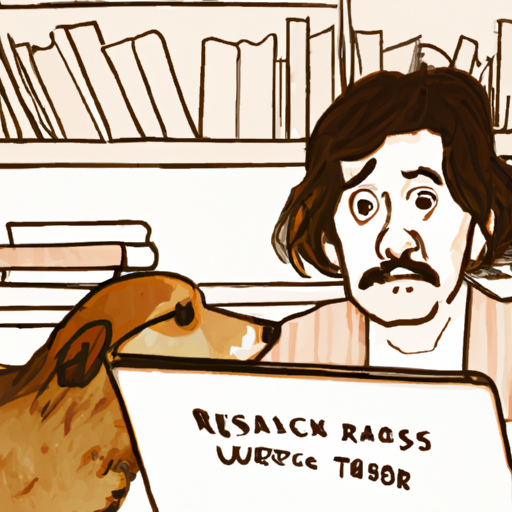Understanding Your Dog’s Anatomy
Firstly, it’s essential for you, as a caregiver, to understand what could be causing this unpleasant issue. Dogs have two small glands, commonly known as anal glands or anal sacs, on either side of their rectum. These glands secrete a foul-smelling liquid that is used for marking territory and other forms of communication between dogs. However, sometimes these glands can become blocked or infected, causing your dog discomfort and leading to leakage.
Common Causes of Anal Gland Problems
There are several reasons why your dog may be experiencing anal gland issues. These include:
- Obesity: Overweight dogs are more prone to anal gland problems because their glands may not empty properly.
- Allergies: Allergies can cause inflammation and swelling, which can lead to anal gland blockage.
- Soft stools: Dogs with soft or loose stools may not be able to express their glands naturally when they defecate.
- Infections or abscesses: Bacteria can enter the anal glands and cause infections or abscesses.
Signs and Symptoms
As a responsible pet owner, it’s crucial to recognize the signs that your dog is experiencing anal gland issues. These signs include:
- Scooting or dragging their rear on the ground.
- Excessive licking or biting at their rear.
- A foul smell coming from your dog.
- A noticeable discharge or leakage from your dog’s rear.
Treatment and Prevention
The treatment for anal gland issues in dogs typically involves a vet expressing (squeezing) the glands to release the buildup. In severe cases, antibiotics or surgical removal of the glands may be necessary.
You can help prevent anal gland problems in your dog by:
- Ensuring your dog maintains a healthy weight.
- Feeding a diet that promotes firm stools.
- Regular grooming and vet checkups.
| Prevention | Why It Helps |
|---|---|
| Healthy weight | Prevents gland blockage |
| Firm-stool diet | Allows natural expression of glands |
| Regular vet checkups | Early detection of issues |
Frequently Asked Questions
Q: Can I express my dog’s anal glands at home?
A: While it is possible, it’s generally recommended that a vet or professional groomer handle this task.
Q: Are some dogs more prone to anal gland problems?
A: Yes, small breed dogs and overweight dogs are more likely to have these issues.
Q: Can anal gland problems be a sign of a more serious health issue?
A: In most cases, these problems are isolated, but if you notice recurring issues, consult your vet for further tests.
Remember, it’s essential to consult with a vet if you notice any unusual behavior or symptoms in your dog. Early detection and treatment can prevent more severe health issues down the line.



